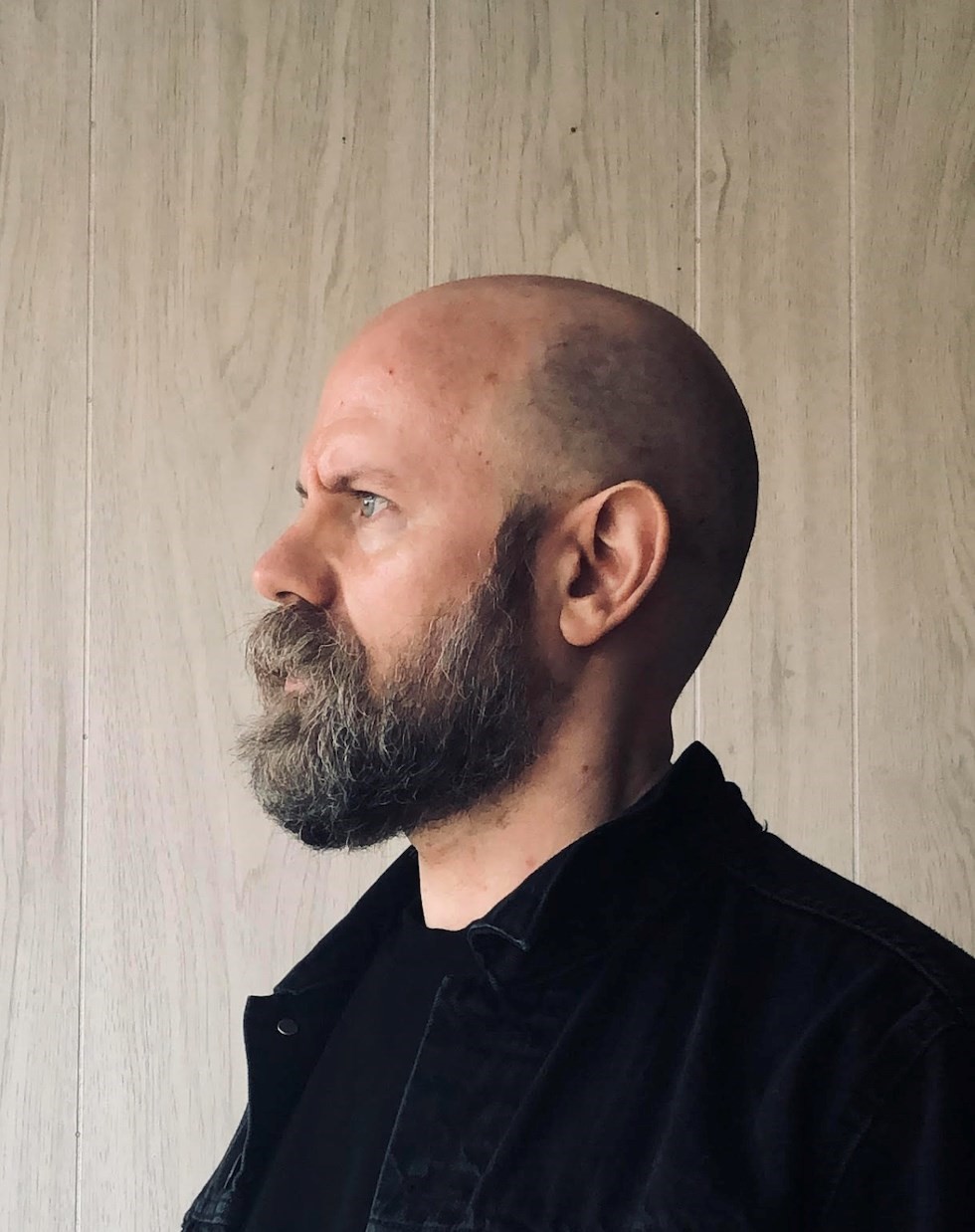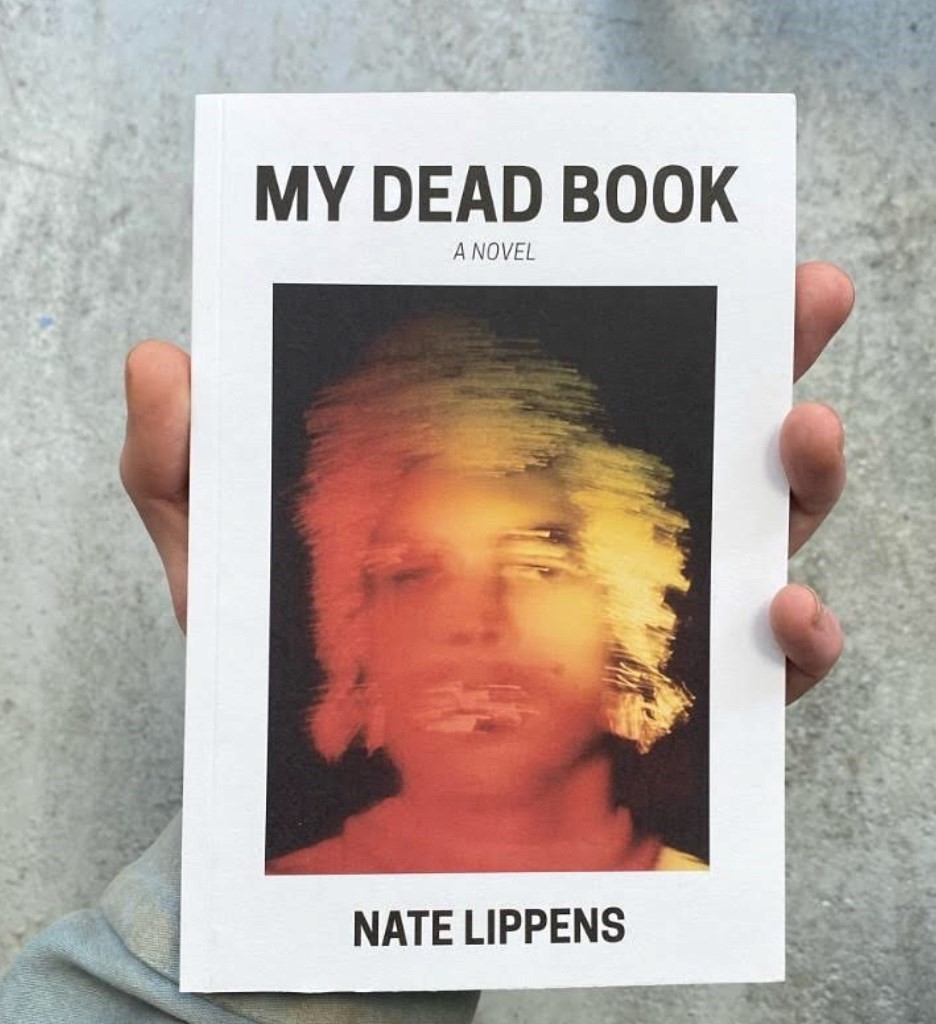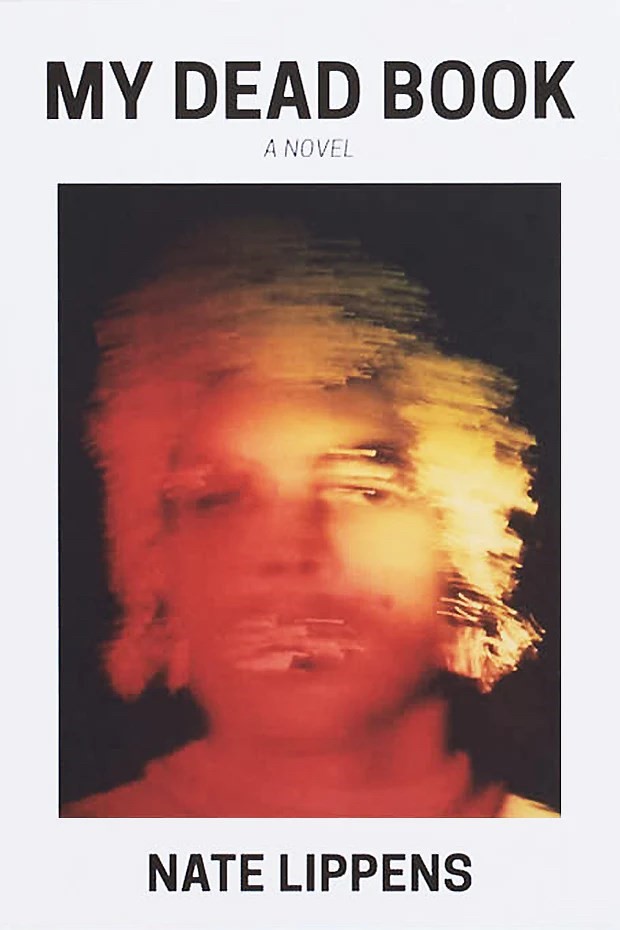I know hating Pride is terribly à la mode, but let’s be real: thank god it’s over. Perhaps I’m just a cynical cross-dresser but as each year passes its integrity continues to diminish into bland swathes of empty activism, rainbow capitalism and unimaginative assimilationist politics. While London Trans Pride and UK Black Pride offer respite from the uncritical mirth, it seems like too many gay men are complacent about the security of queer rights. While the House did vote to protect same-sex marriage from reversal this week, the fragile state of our liberation mustn’t be forgotten, especially in light of Roe v Wade, homophobic associations with monkeypox, and the defamation of trans people in the Tory leadership race. It feels like certain gay men treat marriage as the marker of liberation and are happy to optimistically celebrate their privileges whilst the rest of the world burns – how dull.
So refreshing then is Nate Lippens’ My Dead Book, a brutally acerbic novel reigniting the power of queer pessimism. Upon nearing his 50th birthday, Lippens felt an urgency to publish his debut novel, which had grown out of a range of short stories written over the last ten years. Published by Richard Porter’s ever-exciting independent publisher Pilot Press, the book follows the ghostly memories of an unnamed ageing narrator who spent the 1990s as a working-class gay sex worker in the Midwest. The book, with its cruel wit, ruminates on a forgotten queer generation that was neither fuelled by the outrage of the Aids crisis nor the comparative liberation enjoyed today. Drawing upon his own experiences and those of his contemporaries, Lippens reminds us of the realities of queer pain that today’s Disneyfied queer optimism would rather ignore. The cover of the book fittingly hosts a work by queer New York artist Jimmy Desana, who died of Aids in 1990 and was known for his punk resistance to art world conventions. Lippens wields Desana’s sense of refusal throughout My Dead Book, using pessimism not just for the sake of curmudgeonliness, but as a vehicle for liberation.

Donna Marcus Duke: My queer peers often say we deserve joy, that we shouldn’t just indulge in trauma. While I agree, many of my trans friends and I feel too much anger at the world right now to afford such merriment. How do you understand the value of queer pessimism?
Nate Lippens: I had been reading Afropessimism by Frank B Wilderson III, which started me thinking about ‘homo-pessimism’. What does it mean to operate from a place of refusal? What does it mean to not expect understanding, acceptance or love? It’s freeing. People think that’s pessimistic – and it is – except it can also be a kind of liberation. It’s hard watching other people who didn’t have that same pessimism, who felt their rights were secure. You don’t want to be the person stealing away their hope, but simultaneously I wish they could admit the precariousness of the situation. It would give them a place to fight from.
Watching what’s happening politically in the United States, it’s a little shocking to see how surprised people are. There’s no schadenfreude on my part, but I knew this culture war had never ended. I really would’ve liked to have been wrong, to have been the bitter queen swanning around at home in a silk robe, listening to Marianne Faithfull and being pissed off about the past – that would have been lovely. But here we are: these problems won’t go away.
When you’re so shocked and disappointed, it’s hard to figure out how to move on or fight back or just even to care for each other. Trans people and the queerer fringes of the gay and lesbian community are more adaptive. I heard an editor say, “I don’t want gay stories that are trauma narratives. I want to uplift the community.” That’s a whole different ship than the one I’m boarding. And that’s why I find myself reading a lot of trans and non-binary writing right now, like Cooper Lee Bombardier, T Fleischmann or Imogen Binnie’s Nevada. I find they allow themselves rage.

DMD: Have you seen that sense of urgency change over time as queer people have enjoyed an increase in societal acceptance?
NL: The conversations I’ve had over the last six or seven years with other queers my age showed a shift toward centrism and increased dependence on institutions. In the US, people have turned to the Supreme Court and to the government to ensure their rights. At some point, you lose sight of the community. The queer community has policed itself for so long, but all of a sudden ageing leather-men at Pride are an eyesore, are villainised, not ‘family-friendly’. Then you see the right-wing calling trans people groomers, which then leads to calling everybody groomers, which then leads to repealing sodomy laws and getting rid of birth control, and all of a sudden they’re going for every pleasure, every personal freedom, every autonomy.
Most recently, we’re seeing the culture war re-emerge with the spread of monkeypox, and it’s horrifying to see younger queer people at war with intimacy again. That’s the one thing you hope falls away over time. I’ve been envious of the comfort and open conversation younger queer people have with their bodies and sex. It was not part of my experience coming of age at all. It’s inspiring and needs to be fought for.
“I’ve been envious of the comfort and open conversation younger queer people have with their bodies and sex. It was not part of my experience coming of age at all” – Nate Lippens
DMD: The book’s scepticism has definitely resonated with a younger readership. I think it speaks to our own frustration with contemporary politics.
NL: I’m realising through social media how much younger queer people read. It’s the opposite of the larger cultural narrative, but that’s probably because queer and trans people are always seeking stories. We’re all still continuously discovering ourselves. Younger readers are making powerful connections between their experiences and those of the past because so many gay men in the generation above me had died or were dying, there was a real divide. Their experiences seemed so distant. A lot of people had fought very hard, but there was a lack of imagination on the part of me and my peers in understanding those lives.
Today, younger queers are proactively connecting the dots of lineage, discovering spaces and histories. It’s only probably in the last ten years that parts of mainstream gay culture have admitted how much the trans experience launched the movement for queer liberation. That was not part of the gay history books when I coming up. Opening up history provides possibility and helps oppose the comforting narrative of centrists.
DMD: The increased centrism of the LGBTQ+ movement is obviously connected to class and wealth. As certain groups (gay men) have faced less discrimination and gained access to more stable incomes, there’s been a lack of care for less fortunate groups. My Dead Book quite forcefully centres on working-class narratives. Why was that important to you?
NL: It’s not terribly relatable for me to read a gay comedy of manners that takes place at a destination wedding – the caterers would be the characters I’d want to know more about. I wanted to capture the poverty of being young and queer at that time. We’ve continued to be pretty poor, well into our thirties and forties. There wasn’t a moment when we were legitimising, when somebody bought a condo. It just continues – perhaps less desperate, but still maintained. However, working-class people are often reduced to survival. There’s a lot of drinking, fucking and fighting, but there isn’t much exploration of their interior lives. The queer working-class people I came up with cared about culture – you’d go to the free museum night but you wouldn't have a yearly membership for it. You’re driven by art and books and music. I wanted that in the book because that frequently gets glossed over – even in indie lit.
The way queer people socialised back then was different. You had to be out in the world, which meant classes and identities intermixed. People had to interact face to face and that created a lot of connections that I feel grateful for. My fagdom freed me from my working-class roots and allowed me to meet other people. You’d be sitting next to an attorney or an artist and different friendships would strike up that I don’t think would happen if I were younger now. I would probably be stuck in a working-class milieu. It would not be called that because of course, in the United States, we don’t talk about class.
“Working class people are often reduced to survival. There’s a lot of drinking, fucking and fighting, but there isn’t much exploration of their interior lives” – Nate Lippens
DMD: The narrator is very frank about money and spends much of his time speaking about his memories of sex work.
NL: A lot of times money isn’t talked about. You’ll have these gay characters in books who have inexplicable wealth – what are these people? How do they live? They’re in Greece now? How?! I want to know a little context. In My Dead Book, that context is sex work. It was at the time in Milwaukee when the serial killer Jeffrey Dahmer was on the loose, so there was a sense that you could actually disappear. I remember living in apartments without a telephone, so if your roommate went missing there was no way to find out where they were. I always felt like the concerned mother because I’d always be asking if someone had seen them, in the hope they’d gone home with someone or taken a road trip or whatever.
If you’re doing sex work, you don’t have a cell phone, you’re getting into cars with people, you’re doing parking lots and porn arcades, and there are just a lot of potential things that can go wrong. For some people that was part of the thrill too. There was a way in which your life was already treated as worthless, so it was perhaps a way of claiming that. Sometimes the risk was a way of saying ‘this is mine’, whereas the risk of just walking down the street and being harassed or beat up wasn’t.
DMD: You place the narrator firmly in the Midwest. We seldom hear of LGBTQ+ narratives outside of queer milieus. What did you want to explore about that particular place at that particular time?
NL: After coming out at 14, a counsellor said I’d eventually end up somewhere like New York or LA, as if I had to just bide my time. Especially in queer literature, the Midwest is often portrayed as a place to flee, always in the rearview mirror, so I wanted to anchor the narrator and revisit Milwaukee. In the book I refer to the likes of Jenna Rollins and Willem Dafoe because they were people who’d grown up in Wisconsin. They represented the idea of someone brilliant who’d escaped. They shook off their accents, moved out into the world and accomplished things. It seemed important to me for it not to just be a story of escape; not everybody flees the Midwest and ends up in New York with a successful life. Sometimes they only scrape by for a few years and move back to Iowa or somewhere new.
“Why does everything have to have a point? Reading should be a pleasure, the idea that it has to be useful seems counterintuitive” – Nate Lippens
DMD: The book is clearly rooted in some of your own experiences and the community you came up in. But to what extent is the book a memoir? Is the division between memoir and fiction even useful?
NL: I wanted it to be fiction because I knew I’d be using my experiences as scaffolding and then go in completely different directions. But I am flattered when people think it’s a memoir because it means that I’ve succeeded in creating something intimate. People have talked to me about their own experiences in relation to the narrator, and I would never say what was ‘fact’ or not. The reader becomes the author at some point, so they’re just feeding their own imagination back to me. I don’t need to assert my authorship or my distance from the narrator.
Writers will lament that fiction novels aren’t respected, but I kind of like that. They’re useless. It feels very queer to me, very non-reproductive, very non-legacy. The expectation with nonfiction is that you’re going to learn something that’s applicable. But a novel doesn’t have to teach you anything, it can be an absolute waste of time, and that’s great. Why does everything have to have a point? Reading should be a pleasure, the idea that it has to be useful seems counterintuitive. I guess I’m celebrating my uselessness.
My Dead Book by Nate Lippens is published by Pilot Press and is out now.
